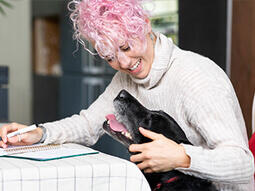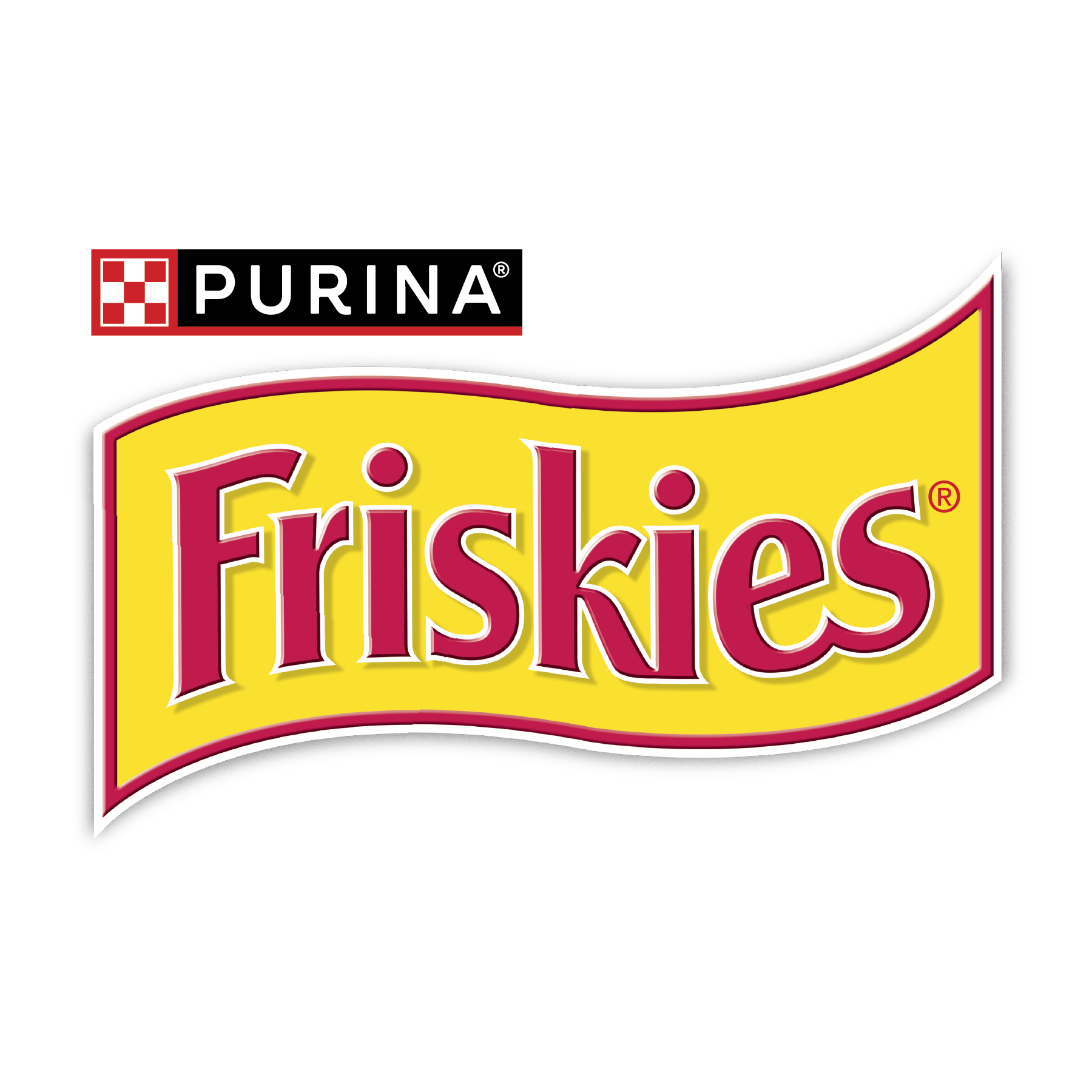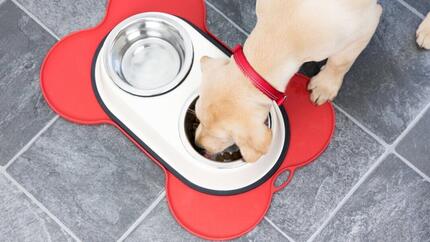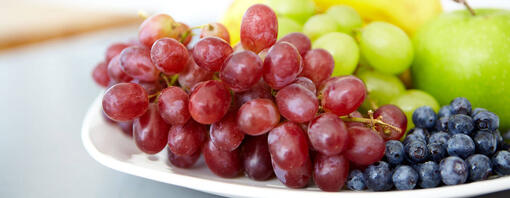
Offering your dog titbits of human food is usually not a good idea. And grapes are the prime example of why you shouldn’t assume food is safe for your dog just because it is consumed by humans. Keep reading to find out more about how toxic grapes are for dogs.
Can dogs eat grapes?
No, grapes can be highly toxic to dogs, so you should never feed this fruit to your pet and make sure that they don’t have easy access to it either. Ingesting grapes or raisins can be fatal for dogs. This is true no matter your dog’s breed, size or the amount ingested. And because scientists haven’t yet identified the exact substance in grapes that is toxic to dogs, your pet should avoid any type of grape-related product.
What are the signs of grape poisoning in dogs?
The answer to the question ‘can dogs have grapes’ is a resounding no. But if you’re worried that your pet has helped themself, you should contact your vet straight away, even if your pet is not yet showing any symptoms. Signs of grape or raisin toxicity include:
- Vomiting
- Diarrhoea
- Lethargy
- Panting and dry nose as symptoms of dehydration
- Difficulty breathing
- Excessive thirst
Do not delay in contacting your vet, as your dog could develop serious health problems such as kidney failure.
Why can some dogs have grapes without showing any toxicity symptoms?
Whether your dog has eaten grapes in the past and seemed unaffected, or you’ve heard stories about owners feeding one or two grapes to their dog as a treat, there are many reasons why you shouldn’t assume your dog is immune to grape poisoning.
Firstly, scientists haven’t yet managed to completely understand why grapes are such a toxic food to dogs. Dosage is one of the main mysteries, as some dogs become unwell after a single grape whereas others have been known to eat several without issues. While the dose considered toxic can vary from dog to dog, it’s not a good idea to try and find out what that is for your dog.
Even if your pet does not show obvious signs of poisoning at first, you shouldn’t assume the pet is immune. There can sometimes be a delay in symptoms developing, and by this point your pet could already have very severe health complications. This is why, if you’ve witnessed your dog eating grapes, it’s important to call your vet immediately and not wait for symptoms to show up. The quicker the intervention, the better the chances that your dog won’t suffer fatal consequences.
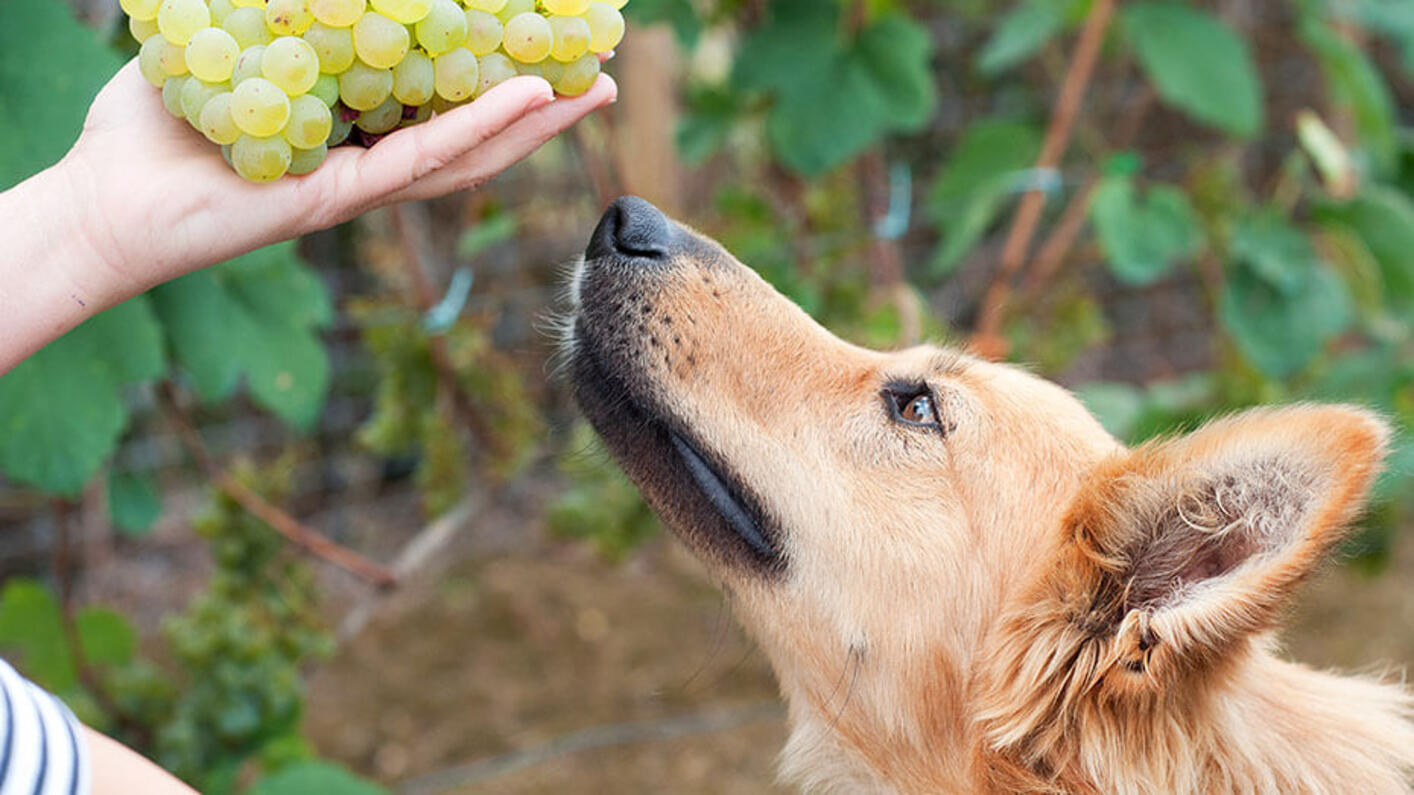
What to do if your dog has eaten grapes?
Contact your vet immediately and make it clear that your dog has ingested grapes. They will intervene promptly, often by inducing vomiting to get the fruit out of your dog’s system. Depending on whether your dog’s kidney function has already been affected, the vet will also provide support to keep these vital organs working properly.
How to prevent dogs from having grapes?
Now that you know the answer to the question ‘are grapes toxic to dogs?’, you’re probably keen to find out how to keep your dog away from the troublesome fruit. Here are a few tricks you can try.
Even though grapes for dogs are a big no-no, your family can still enjoy them. All you need to do is make sure you’re keeping grapes and raisins in places that are not accessible to your pet, in the fridge or a higher-placed cupboard.
Always check that you’re not accidentally leaving grapes on the floor as you wash them or place them on the table. This is true for raisins as well.
Feeding your dog scraps from the dinner table or treating them to human desserts such as mince pies or fruit cakes is not recommended. Often these contain ingredients, including raisins or chocolate, that are toxic to dogs.
Dogs are often eager to have a sniff in the shopping bags you’ve just brought home and, unbeknownst to you, they will tear straight through the bag of dried fruit or grapes. This is why it’s important to be mindful of emptying your shopping bags as soon as you get home and put grapes and raisins in a safe place that is inaccessible to your pet.
Make sure everyone in the family, including kids, knows to avoid feeding grapes to the dog.
Sometimes it’s difficult to take your dog’s mind away from the fruit on the kitchen countertop. If your dog is after a fruity treat, blueberries, oranges and strawberries are examples of fruits that are safer for your pet. However, these should be given to dogs in moderation as they contain high levels of sugar which can lead to problems such as obesity and dental disease.
Now that you know grapes are toxic to dogs, you’re probably wondering what other human foods are potentially poisonous to your pet. Find out in our article Harmful substances and foods for dogs.
